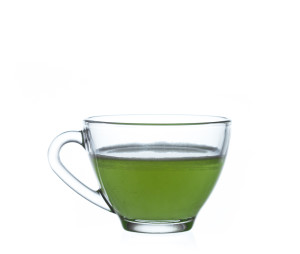Written by Angeline A. De Leon, Staff Writer. Only those tea drinkers who drank green and black oolong teas consistently over the course of the study had a significantly reduced risk of developing neurocognitive disorders.
 Known for its ability to improve mental focus, tea has long been recognized as a natural cognitive enhancer, especially in traditional Asian cultures. Active components in tea, including catechins, L-theanine, and caffeine, are known to initiate structural brain changes 1 that can enhance alertness and concentration in the short-term 2. Although longer-term effects of tea consumption on cognitive functioning are not yet well understood, preliminary studies suggest promising results for older adults and those at risk for cognitive impairment 3.
Known for its ability to improve mental focus, tea has long been recognized as a natural cognitive enhancer, especially in traditional Asian cultures. Active components in tea, including catechins, L-theanine, and caffeine, are known to initiate structural brain changes 1 that can enhance alertness and concentration in the short-term 2. Although longer-term effects of tea consumption on cognitive functioning are not yet well understood, preliminary studies suggest promising results for older adults and those at risk for cognitive impairment 3.
A large-scale longitudinal aging study by Feng and colleagues (2015) in Singapore studied the relationship between tea consumption and the occurrence of neurocognitive disorders (NCD) in community-dwelling older adults. A total of 957 cognitively-intact Singaporean residents (aged 55 years or older) were evaluated on cognitive function (using the Mini-Mental State Examination, MMSE, a 30-point questionnaire designed to detect cognitive impairment). They were also evaluated on habitual tea intake (based on self-report measures on frequency of tea consumption, from 1 cup weekly to 3 or more cups daily) at baseline (2003-2005) and then again at follow-up (2006-2010). Follow-up assessment also involved evaluation of incident cognitive decline, using the Clinical Dementia Rating scale.
In order to examine the relationship between tea consumption and incident NCD, statistical regression analyses were performed. Controlling for baseline factors such as gender, Body Mass Index, physical activity, and various diseases, the risk for NCD was calculated based on 1 whether participants identified as consumers or non-consumers of tea, 2 participants’ level of tea consumption (never, low, medium, or high), and 3 the duration of tea consumption between baseline and follow-up assessment.
Statistical results pointed to a general association between tea intake and lower risk of NCD, independent of other risk factors. Researchers found signs of cognitive decline in 11.1% of non-consumers (33/297), as compared to only 5.9% of tea drinkers (39/660). Findings also showed that the risk of cognitive impairment was 50% lower in tea consumers vs. non-consumers of tea (odds ratio, OR=0.50; 95% CI: 0.28-0.87). In the non-consumer group, tea drinkers with low, medium, and high levels of baseline tea consumption, presented with odds of NCD development that were lower by 65% (95% CI: 0.31-1.36), 36% (95% CI: 0.16-0.78), and 54% (95% CI: 0.25-1.20), respectively, showing an overall significant linear trend (p=0.025) among habitual users. Finally, of the 908 participants who reported data on tea consumption at baseline and follow-up, only those who consumed tea consistently over the course of the study, compared to individuals who were non-consumers at both time points, showed reduced risk of NCD (OR=0.39; 95% CI: 0.18-0.88).
Overall findings of the study establish an association between regular tea consumption and lower risk of cognitive impairment in older Singaporean adults. This indicates that the neuroprotective effect of green and black oolong teas is independent of known risk factors and is both dose and duration dependent. Additional analyses which reported reduced risk of NCD among females and carriers of the risk gene for Alzheimer’s Disease, but not males and non-carriers of the Alzheimer’s genotype, also suggest that gender and genetic profile may differentially influence the efficacy of tea’s protective qualities. Finally, it is worth noting that since the study relied primarily on a single diagnostic assessment tool, the MMSE, rather than a standard battery of neuropsychological measures, to determine cognitive function, the effect of some of their findings may be limited in reliability and should, therefore, be interpreted with caution.
Source: Feng L, Chong MS, Lim WS, et al. Tea consumption reduces the incidence of neurocognitive disorders: Findings from the Singapore longitudinal aging study. Journal of Nutrition Health and Aging. 2016; 20(10): 1002-1009. DOI: 10.1007/s12603-016-0687-0
Posted March 28, 2017.
Angeline A. De Leon, MA, graduated from the University of Illinois at Urbana-Champaign in 2010, completing a bachelor’s degree in psychology, with a concentration in neuroscience. She received her master’s degree from The Ohio State University in 2013, where she studied clinical neuroscience within an integrative health program.
References:
- Schmidt A, Hammann F, Wölnerhanssen B, et al. Green tea extract enhances parieto-frontal connectivity during working memory processing. Psychopharmacology. 2014;231(19):3879-3888.
- De Bruin E, Rowson M, Van Buren L, Rycroft J, Owen G. Black tea improves attention and self-reported alertness. Appetite. 2011;56(2):235-240.
- Kuriyama S, Hozawa A, Ohmori K, et al. Green tea consumption and cognitive function: a cross-sectional study from the Tsurugaya Project. The American journal of clinical nutrition. 2006;83(2):355-361.
